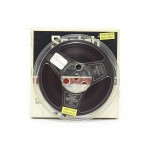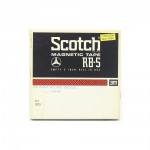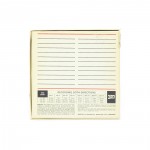Ron Loewinsohn
00:00:00.00
I do want to try to read as much as I can from the more recent material, the book is called Meat Air, and the last section which is the collection of new stuff is called “Book of Airs”. Let me start out with, let me start out with one called "His Music's Like His Twenty Children".
Annotation
00:00:30.77
Reads "His Music's Like His Twenty Children".
Annotation
00:01:54.88
Reads "It Is to Be Bathed in Light".
Ron Loewinsohn
00:04:25.49
This is called "Song".
Annotation
00:04:30.62
Reads "Song".
Ron Loewinsohn
00:05:10.25
And this one called "The Rain, The Rain".
Annotation
00:05:17.34
Reads "The Rain, The Rain".
Ron Loewinsohn
00:06:20.87
Let me, let me do one called "Fuck You With Your Home Run Title". That title had to be changed, it was originally "Fuck You Roger Maris", but Harcourt Brace didn't want to be sued. It's not as if I can't afford it, it's just that it wouldn't do any body any good. So this is "Fuck You With Your Home Run Title".
Annotation
00:07:04.96
Reads "Fuck You With Your Home Run Title".
Ron Loewinsohn
00:07:41.74
The quote "thoughts of the party were in my head" is from the World Champion Weight Lifter, who is a Communist Chinese, and after he had pressed some 5,000 lbs or something they said, you know "You're fantastic, how did you do it?". And he said "Thoughts of the party were in my head". This is called "Vision of Childhood".
Annotation
00:08:15.04
Reads "Vision of Childhood".
Ron Loewinsohn
00:10:33.77
This is called "Lots of Lakes"
Annotation
00:10:37.30
Reads "Lots of Lakes".
Ron Loewinsohn
00:12:03.41
This is called "The Sea Around Us".
Annotation
00:12:17.95
Reads "The Sea Around Us".
Ron Loewinsohn
00:15:59.35
I want to read some, most of the poems from this section called "Book of Ayres", and I want to explain just a little bit about it if I can, I guess the most important thing to say is that they declared themselves as a book of poems, in the middle of a final exam, I was taking an exam and one of the things that we had to deal with was a poem by Emily Dickinson, which I will read to you, it's a marvelous poem, I'd never seen it before. And it's so clearly tied all of the poems I'd been working on for the past year or so together, into a bundle, into a package. Let me read to you the, this little statement which I'd written for the publication of the book, and I, simply to insist that they are before anything else, religious poems, and I, as prepossessing as I am about them now, because I think that I may have occasion later on in the reading to call that, or you may have occasion to call that to mind. That they take, as their focus, the making, the finding of the flesh in the word, that is that the word is flesh and it has to be found as such. But let me just read this statement and then I'll read you the Emily Dickinson poem, we'll go right into the Book of Airs. I hope that they're, also, that they're fun, and then you say 'religion', people say, 'uh-oh', this is going to be very grim and very heavy, and in the old sense of heavy. But I hope we can have fun with them, but simply, let me do this. All the poems in the “Book of Ayres” section Meat Air, were written with the intention, though not entirely conscious ‘til rather late in the series, of making the word flesh. That is, when the poet speaks, his words are physically only air, yet they can afford us the most sensorially tangible of experiences. Further, the poem, though merely air, is what sustains us, what the soul feeds on. The poet speaks to keep the soul of man alive, that's Yeats in “John Kinsella's Lament for Mrs. Mary Moore”, it's interesting that as I was grabbing for something to, for support, picked that line, because the line continues, or rather the whole passage goes "And oh, but she had stories, though not for the priest's ear, to keep the soul of man alive, to banish age and care, and being old, she put a skin on everything she said". Or as Williams puts it, "It is difficult, to get the news from poems, yet me die, every day, for lack of what is found there." Yet if the word seeks to take on the actuality of flesh, of substance, substance itself, as the poet apprehends it, in the merest of tales of his life, from day-to-day, seeks to take on the resonating actuality of speech, to realize itself in the actuality of the word. Love itself is both a word and a continuing act or process, both an idea and a tension in the chest, viscera and genitals, a pressure toward articulation so complex that it often stifles speech. About half way though the book of Airs, I realized that many of the poems I'd written over the past twelve years or so, had been attempting with various degrees of success to effect these transubsatiations and so, this collection. "The Dickinson Poem", which if you want to take a look at it is in Thomas Johnson's editions, it's number “1651”.
Annotation
00:20:02.84
Reads Emily Dickinson poem "1651".
Ron Loewinsohn
00:20:49.05
And one last note before starting in the book has an epigraph from Jim St. Jim. "I need to take a new tack, and sit on it." The first poem's called "These Worlds Have Always Moved in Harmony".
Annotation
00:21:11.19
Reads "These Worlds Have Always Moved in Harmony".
Annotation
00:21:22.43
[bell rings] What the hell is that? I have this terrible recollection of this story I heard about a college in the Mid-West in the United States where a visiting prof came out to give a lecture on Plato or something and had this bell go off every fifteen minutes and after, it really unnerved him, and after the end of the lecture, he asked one of the people, like, "What is that bell going off?" and the guy, the administrator said "Oh, that's to keep the students awake". I- If that's the case, God bless you, I hope we can do better than that.
Annotation
00:22:08.52
Re-starts "These Worlds Have Always Moved in Harmony".
Ron Loewinsohn
00:23:34.38
And this is called "The Sipapu". Don't worry about the title, it clears up.
Annotation
00:23:52.28
Reads "The Sipapu".
Ron Loewinsohn
00:27:51.39
This is called "Settling".
Annotation
00:27:58.81
Reads "Settling".
Ron Loewinsohn
00:29:48.59
This is called, this next poem is called "Paean" p-a-e-a-n, paean, and is a collaboration in a sense that it's the kind of poem in which a number of people get together and contribute lines, you give me three lines, and I'll give you two lines and eventually the poem gets written, and simply to give credit where credit where credit is due, to list the people who did contribute or help out in the writing of this poem, John Dryden, William Carlos Williams, and the Associated Press.
Annotation
00:30:31.00
Reads "Paean".
Ron Loewinsohn
00:32:12.79
The story goes that St. Cecilia invented the organ, and when she was playing an angel passed and mistook earth for heaven because of this fantastic music. "Went to her organ [inaudible] breath was given" says John Dryden. These are a couple of songs.
Annotation
00:32:38.36
Reads first line "I think of you through a pain in my throat..."
Ron Loewinsohn
00:32:48.36
This one also called "Song".
Annotation
00:32:54.50
Reads first line "Like two apples in a tree..."
Ron Loewinsohn
00:33:12.45
And this one also called "Song".
Annotation
00:33:18.05
Reads first line "If there is nothing but the rhythm of tears..."
Ron Loewinsohn
00:33:57.55
And this one called "Air".
Annotation
00:34:01.68
Reads "Air".
Ron Loewinsohn
00:34:59.09
And this one called "Goat Dance".
Annotation
00:35:07.24
Reads "Goat Dance" first line "You inspire me..."
Ron Loewinsohn
00:36:30.35
This one called "Two Airs".
Annotation
00:36:36.83
Reads "Two Airs".
Ron Loewinsohn
00:37:31.43
And another one called "Goat Dance".
Annotation
00:37:35.75
Reads "Goat Dance". First line: "1. In the middle of the park..."
Ron Loewinsohn
00:38:48.91
And this, title, may perhaps need a little bit of explanation. "The Romaunt of the Rose", a 13th century French dream vision poem, dream allegory, written actually in two halves by Jean de Meun and Gillaume de Lorris I'm not sure but Chaucer translated the first part of it, and the title comes from his title, "The Romaunt of the Rose". The last line of the poem, [inaudible middle english], is from Chaucer's translation and it's "smitten right to the heart's root". And the whole, the title of the poem is "The Romaunt of the Rose-fuck".
Annotation
00:39:39.84
Reads "The Romaunt of the Rose Fuck".
Ron Loewinsohn
00:40:22.28
I'll just do two more, the first one called "K. 282". Koechel is- don't please, be insulted that I explain that title, I read the poem in New York and a graduate student at Columbia asked me if it meant "Circa 282", like circa 282, like approximately 282, and it is of course the catalogue number for the Mozart piano sonata, and it's a piano sonata, I forget which, what key it's in.
Annotation
00:41:04.90
Reads "K. 282".
Ron Loewinsohn
00:42:02.31
And the last poem is the title poem of the book, "Meat Air".
Annotation
00:42:08.65
Reads "Meat Air".
Annotation
00:43:00.20
END OF RECORDING.




